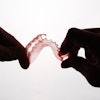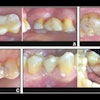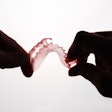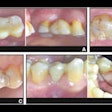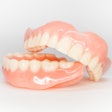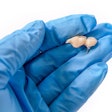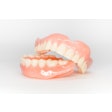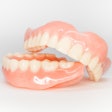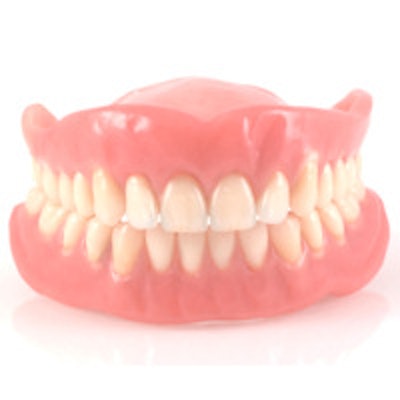
Edentulous patients have a number of treatment options as dental implant technology evolves and improves. But for many, dentures are still the answer. Now a new study published in Journal of the American Dental Association has focused on the different denture qualities that lead to the greatest patient satisfaction. The results can help clinicians set themselves up for success when treating patients in this fashion.
"The study findings show that a clinically stable and retentive mandibular denture is the most important determinant of patients' satisfaction with their conventional complete dentures," noted study author Sara Alfadda, BDS, PhD, an assistant professor/consultant and co-director of the graduate program in prosthodontics at King Saud University in Riyadh, Saudi Arabia (JADA, September 2014, Vol. 145:9, pp. 941-948).
Satisfaction does not stem solely from the way dentures fit; there are other key physical and psychological factors at play. With regard to the former, the physical condition of the mouth is very important. In the study, Dr. Alfadda discussed the "direct association between the oral musculature and the residual ridge forms -- in terms of the degree of bone resorption -- and denture comfort, retention, and speech, as perceived by the patient."
Setting proper expectations for the outcome of a patient's dentures is somewhere in between. Clinicians have to consider the soft tissue and salivary flow in addition to the residual ridges when they explain what the patient's dentures will be like after treatment is completed. Delivering this information, and the way in which it is delivered, are very important.
"In fact, study findings indicate that a positive clinician-patient relationship could be more important in attaining patient satisfaction than is providing the patient with dentures that meet the technical prosthodontics requirements," Dr. Alfadda wrote.
A sustained need
While overall oral health has improved and rates of endentulism have dropped, an increasing population and treatment options limited by circumstance or physiology for many will ensure the continued use of dentures. Consequently, the author felt it necessary to examine the relationship between patient satisfaction and denture quality, a topic that lacks significant data, Dr. Alfadda noted. Many of the findings that are available are conflicted.
Against that backdrop, three independent investigators combed through a list of patients who received conventional complete dentures from September 2009 through January 2013, identifying 124 eligible patients who were still wearing their dentures. Those who had psychological or physical disorders were excluded; the investigators randomly selected 33 patients from the list of remaining patients.
These patients, who were fitted for their dentures by clinicians who were not involved with the study, were examined by three clinicians to evaluate aesthetics, retention, and stability of both maxillary and mandibular dentures, and balanced occlusion on a satisfactory or unsatisfactory scale. In the next phase, these clinicians worked with patients to collect patient-based outcomes using the self-reported denture satisfaction scale, ranging from 1 ("not at all satisfied") to 5 ("totally satisfied"). The participants were asked to rate their general satisfaction, retention, stability, comfort, their ability to speak, appearance/aesthetics, and chewing efficiency for their maxillary and mandibular dentures. Afterward, the investigators analyzed the data.
Overall, the mean denture satisfaction score among the 33 participants was 3.6., meaning that most patients were "reasonably satisfied" to "very satisfied" with their dentures, Dr. Alfadda explained. Greater mean satisfaction (4.0) was reported for the maxillary denture than the mandibular (3.1).
"Overall, the results showed a statistically significant relationship between denture quality and denture satisfaction," the author noted. In addition, slightly greater satisfaction was reported among those patients who received both dentures than those who received only a mandibular denture. The relationship between stability and retention of the mandibular denture and overall satisfaction was significantly positive, according to Dr. Alfadda.
With maxillary dentures, "the only significant association was between occlusion quality and satisfaction with the appearance of the maxillary denture," the author wrote. "However, the results showed several significant associations between the denture quality parameters -- notably, the maxillary and mandibular stability and retention items -- and the mandibular denture satisfaction items."
With the data, clinicians can better understand what aspects of their patients' dentures lead to the greatest satisfaction.

